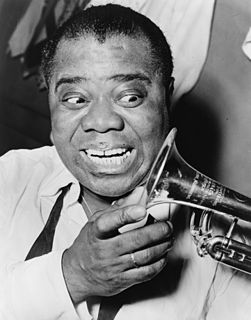This is a list of notable events in music that took place in the year 1952.
This is a list of notable events in music that took place in the year 1951.

This is a list of notable events in music that took place in the year 1950.

This is a list of notable events in music that took place in the year 1953.

Jo Elizabeth Stafford was an American traditional pop music singer, whose career spanned five decades from the late 1930s to the early 1980s. Admired for the purity of her voice, she originally underwent classical training to become an opera singer before following a career in popular music, and by 1955 had achieved more worldwide record sales than any other female artist. Her 1952 song "You Belong to Me" topped the charts in the United States and United Kingdom, becoming the second single to top the UK Singles Chart, and the first by a female artist to do so.

Frankie Laine was an American singer, songwriter, and actor whose career spanned nearly 75 years, from his first concerts in 1930 with a marathon dance company to his final performance of "That's My Desire" in 2005. Often billed as "America's Number One Song Stylist", his other nicknames include "Mr. Rhythm", "Old Leather Lungs", and "Mr. Steel Tonsils". His hits included "That's My Desire", "That Lucky Old Sun", "Mule Train", "Jezebel", "High Noon", "I Believe", "Hey Joe!", "The Kid's Last Fight", "Cool Water", "Rawhide", and "You Gave Me a Mountain".
"In the Cool, Cool, Cool of the Evening" is a popular song with music by Hoagy Carmichael and lyrics by Johnny Mercer. It was originally planned to feature it in a Paramount film written for Betty Hutton that never took off, which was to be called The Mack Sennett Girl. The song was buried in Paramount's files until it was rediscovered and then used in the 1951 film Here Comes the Groom and won the Academy Award for Best Original Song.
"A Bushel and a Peck" is a popular song written by Frank Loesser and published in 1950. The song was introduced in the Broadway musical Guys and Dolls, which opened at the 46th Street Theater on November 24, 1950. It was performed on stage by Vivian Blaine and a women's chorus as a nightclub act at the Hot Box. It is the first of two nightclub performances in the musical. Although Blaine later reprised her role as Miss Adelaide in the 1955 film version of the play, "A Bushel and a Peck" was omitted from the film and replaced by a new song, "Pet Me, Poppa."
Violator is a company, record label, marketing group, and multi-media entertainment conglomerate founded and operated by Chris Lighty and Mona Scott-Young until Lighty's death on August 30, 2012.

"Hey, Good Lookin'" is a 1951 song written and recorded by Hank Williams, and his version was inducted into the Grammy Hall of Fame in 2001. In 2003, CMT voted the Hank Williams version No. 19 on CMT's 100 Greatest Songs of Country Music. Since its original 1951 recording it has been covered by a variety of artists.
"Too Marvelous for Words" is a popular song written in 1937. Johnny Mercer wrote the lyrics for music composed by Richard Whiting. It was introduced by Wini Shaw and Ross Alexander in the 1937 Warner Brothers film Ready, Willing and Able, as well as used for a production number in a musical revue on Broadway. The song has become a pop and jazz standard and has been recorded by many artists.

"Making Memories" is a song originally recorded by Frankie Laine in 1967. It became a U.S. Top 40 hit, reaching #35, and an Easy Listening hit, peaking at #2.
"September in the Rain" is a popular song about nostalgia by Harry Warren and Al Dubin, published in 1937. The song was introduced by James Melton in the film Melody for Two. It has become a standard, having been recorded by many artists since.
"A Woman in Love" is a popular song. It was written by Frank Loesser and published in 1955. It was introduced in Samuel Goldwyn's 1955 cinematic adaptation of the Broadway musical Guys and Dolls, for which Loesser contributed three new songs – including "A Woman in Love" – which had not been in the original stage production. In the film, it was sung as a duet between Marlon Brando and Jean Simmons. The cover version by Frankie Laine reached number 1 in the UK Singles Chart in 1956.

"Basin Street Blues" is a song often performed by Dixieland jazz bands, written by Spencer Williams in 1928 and recorded that year by Louis Armstrong. The verse with the lyric "Won't you come along with me / To the Mississippi..." was later added by Glenn Miller and Jack Teagarden.

Sincerely Yours is a 2006 compilation album of songs recorded by American singer Jo Stafford. It was released on May 9, 2006 on the Sepia Records label.

The Columbia Hits Collection is a 2001 compilation album of songs recorded by the American singer Jo Stafford. It was released by Corinthian Records on January 1, 2001.

A Musical Portrait of New Orleans, a 1954 album by Jo Stafford and Frankie Laine, combine their talents in a mix of solos and duets. Paul Weston and his Orchestra provide the music. This album was issued in the UK by Phillips under the title Floatin' Down to Cotton Town.
That's Good, That's Bad may refer to:









